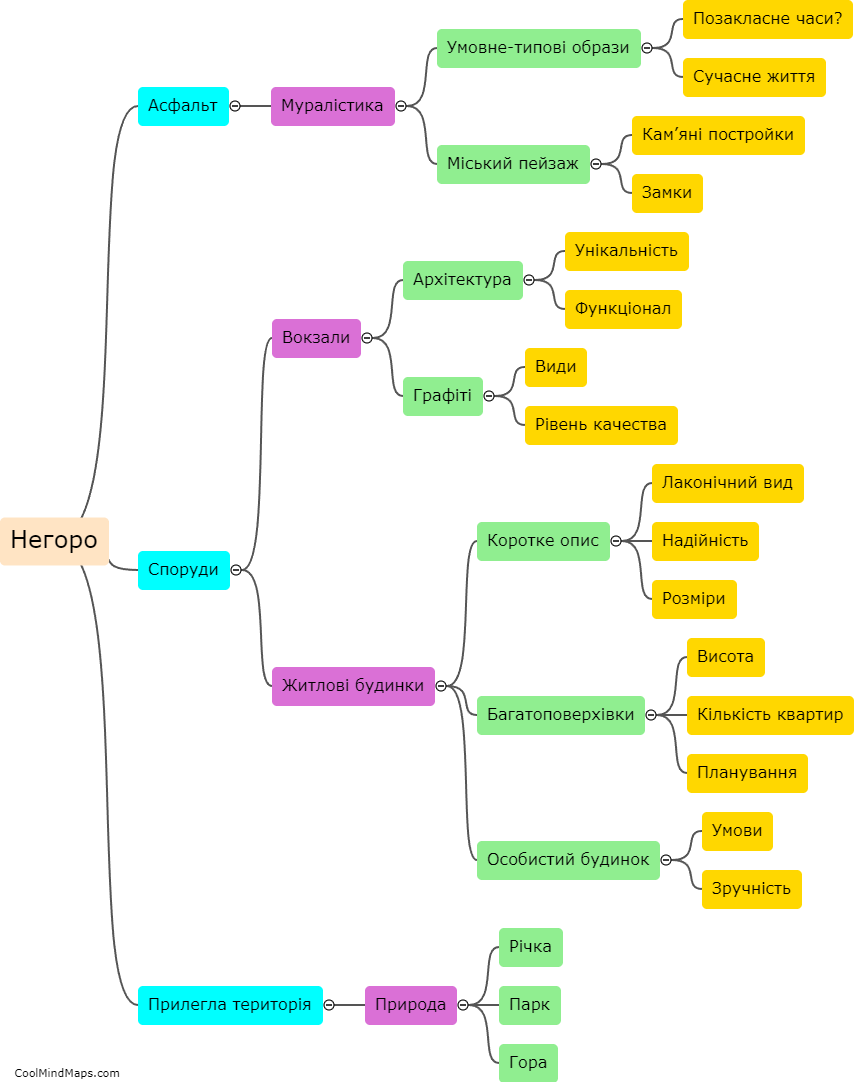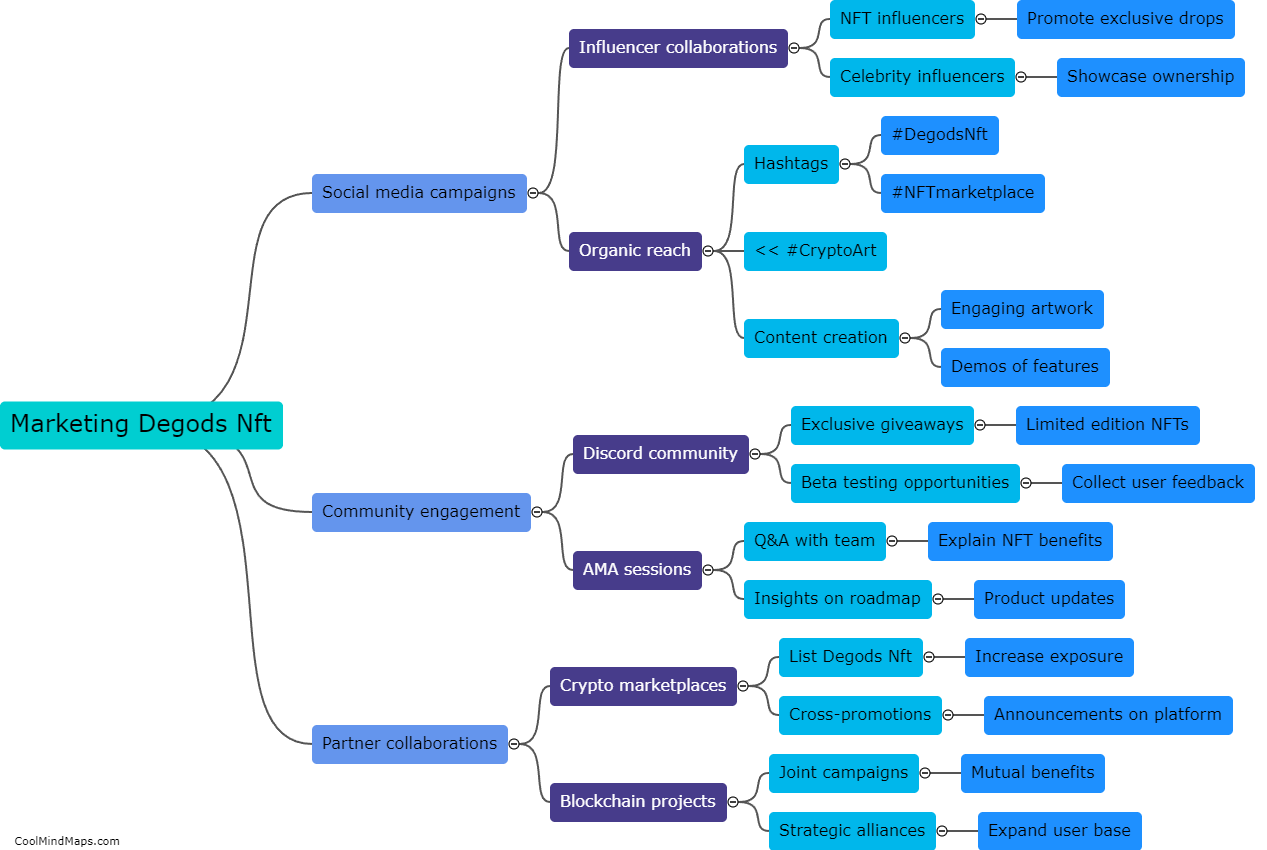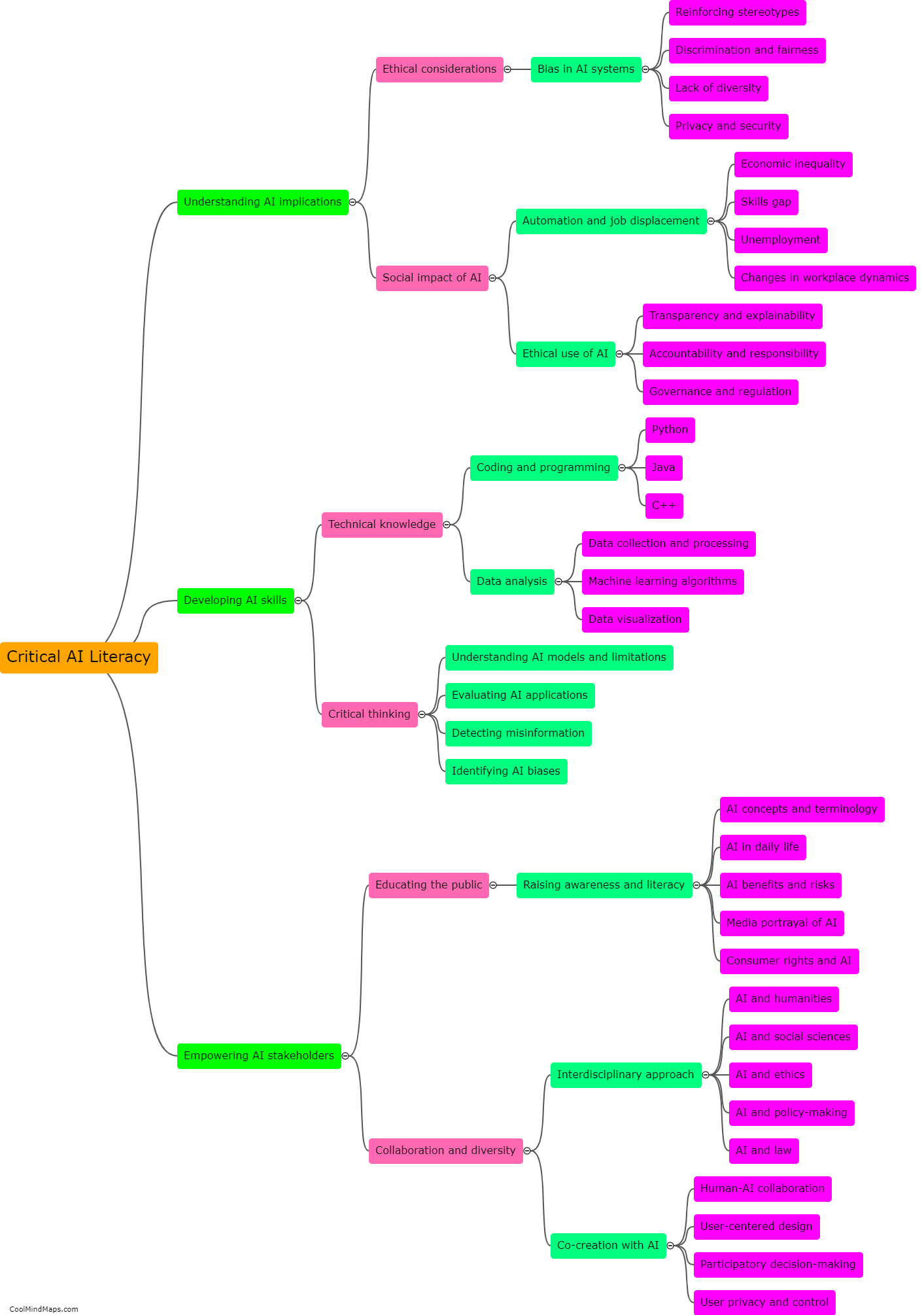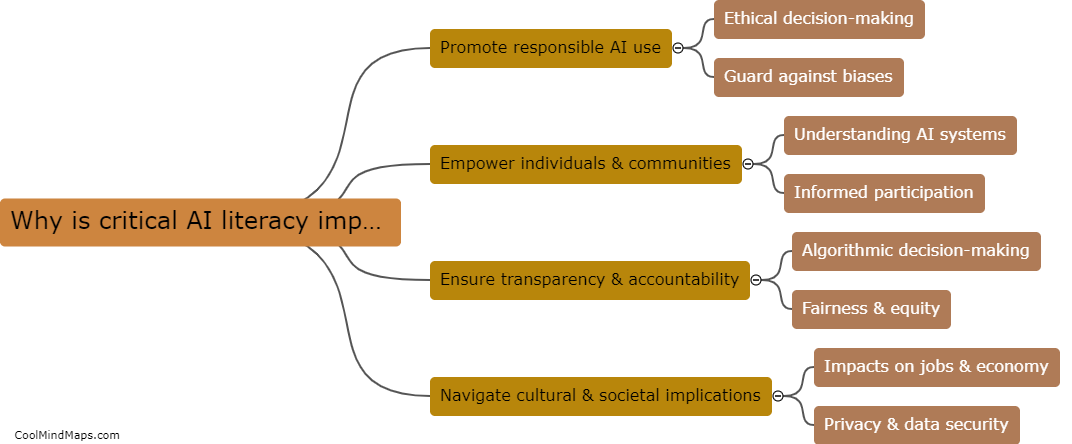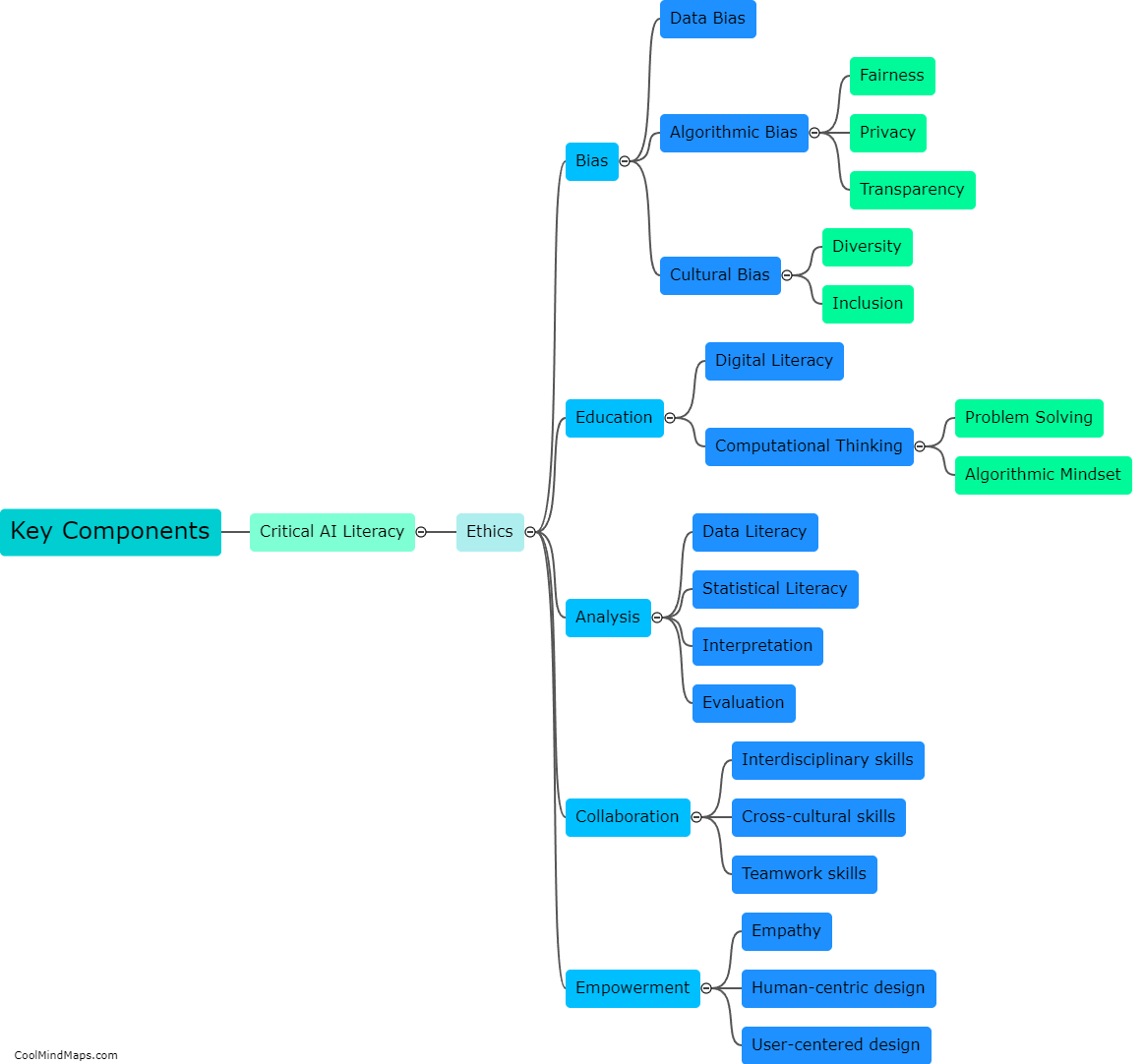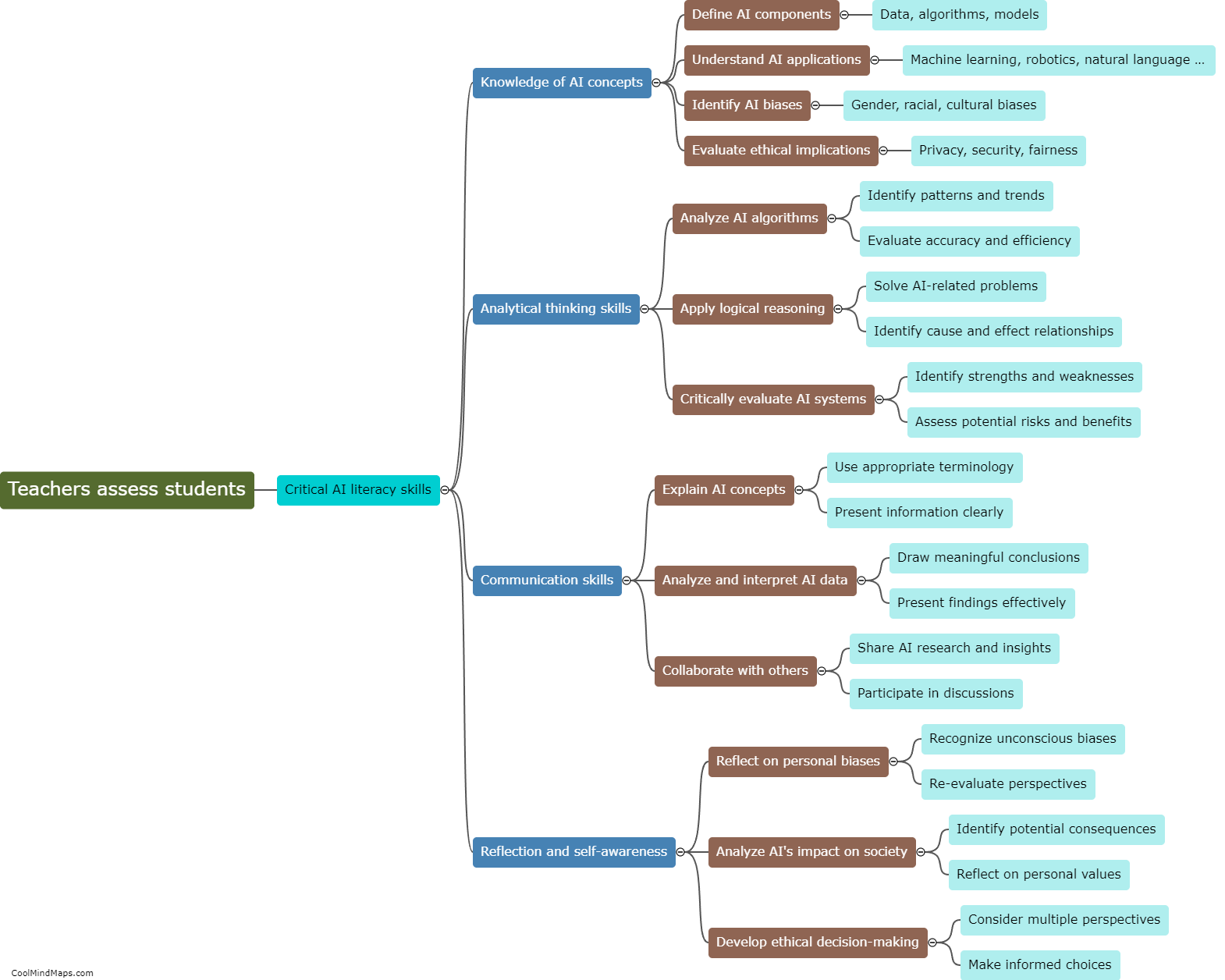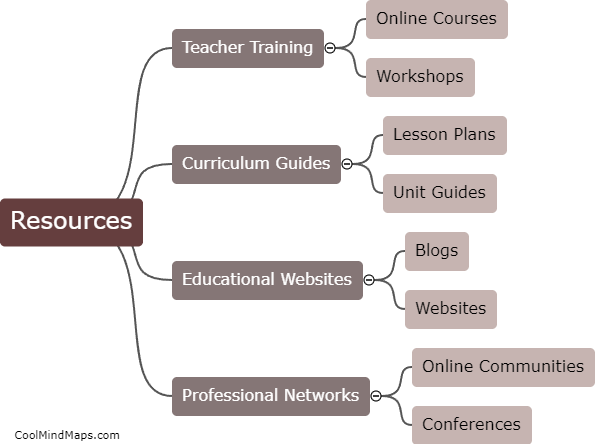What are effective strategies for promoting critical AI literacy in the classroom?
Promoting critical AI literacy in the classroom requires an array of effective strategies. First and foremost, educators should develop a curriculum that incorporates AI as a subject, providing students with knowledge of its fundamentals and societal implications. Creating a supportive and interactive learning environment is crucial, allowing students to critically evaluate AI technologies and their potential impact. Active learning approaches, such as problem-solving activities or hands-on projects involving AI, can enhance students' comprehension and engagement. Encouraging discussions and debates about ethical considerations and biases in AI algorithms also fosters critical thinking. Furthermore, promoting media literacy and teaching students to identify and evaluate AI-related sources of information are essential for cultivating their ability to make informed judgments about AI systems.
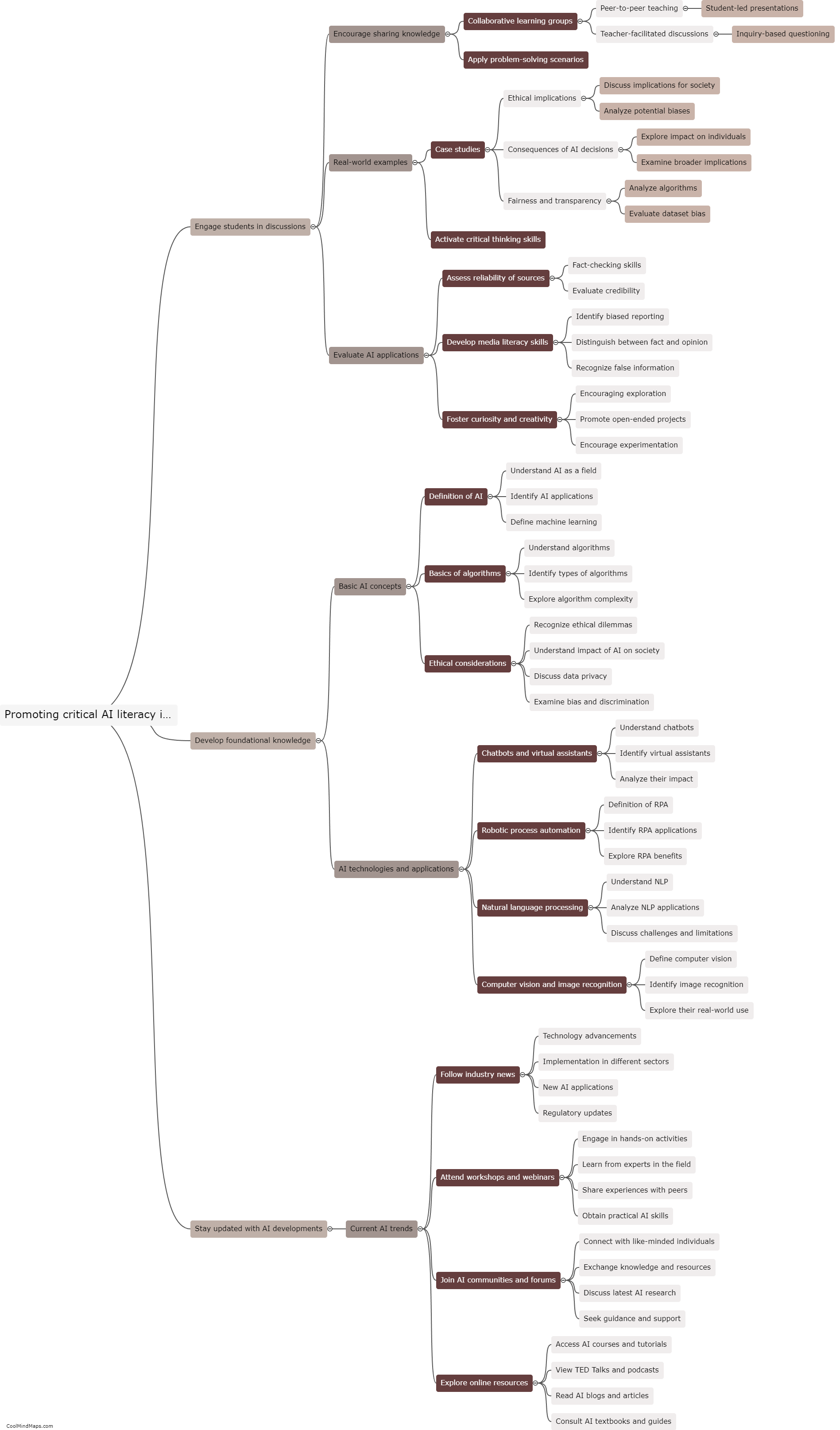
This mind map was published on 27 October 2023 and has been viewed 99 times.


